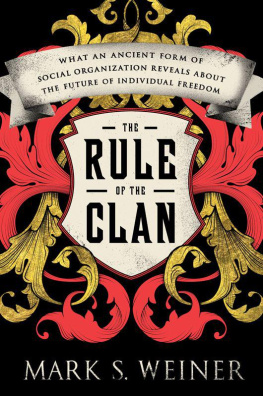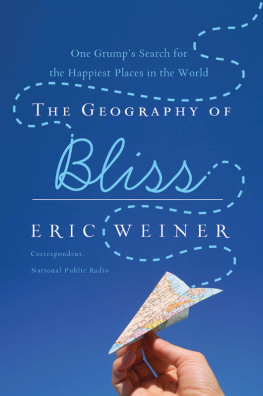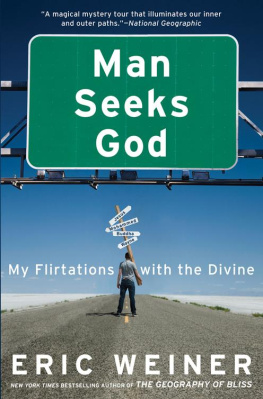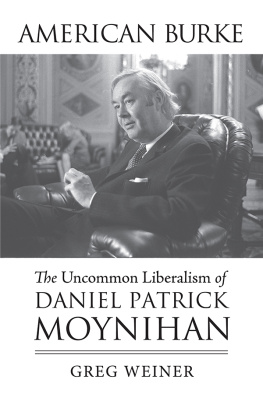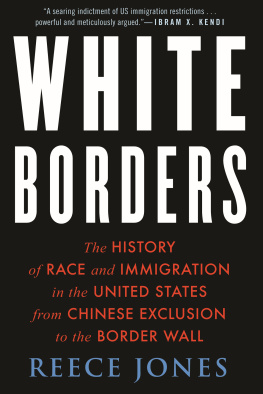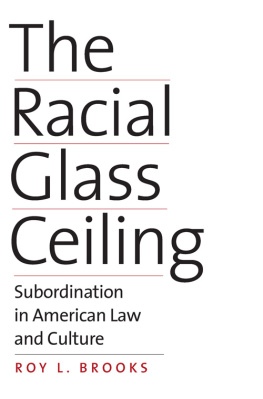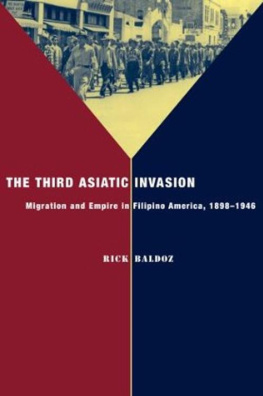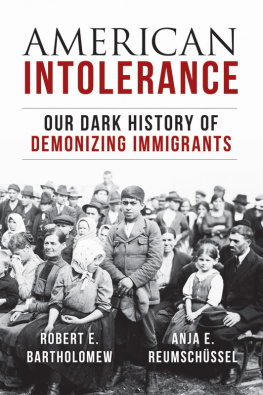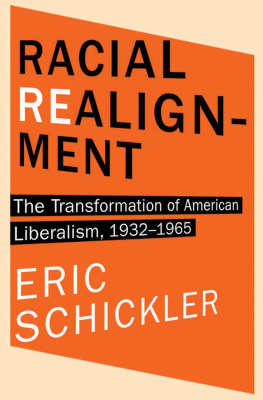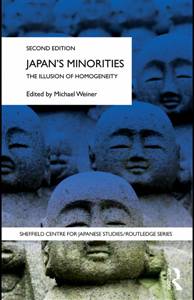Thank you for buying this ebook, published by NYU Press.
Sign up for our e-newsletters to receive information about forthcoming books, special discounts, and more!
Sign Up!
About NYU Press
A publisher of original scholarship since its founding in 1916, New York University Press Produces more than 100 new books each year, with a backlist of 3,000 titles in print. Working across the humanities and social sciences, NYU Press has award-winning lists in sociology, law, cultural and American studies, religion, American history, anthropology, politics, criminology, media and communication, literary studies, and psychology.
Americans without Law
Americans without Law
The Racial Boundaries of Citizenship
Mark S. Weiner

NEW YORK UNIVERSITY PRESS
New York and London
www.nyupress.org
2006 by New York University
All rights reserved
Library of Congress Cataloging-in-Publication Data
Weiner, Mark Stuart.
Americans without law : the racial boundaries of citizenship /
Mark S. Weiner.
p. cm.
Includes bibliographical references and index.
ISBN13: 9780-814793640 (cloth : alk. paper)
ISBN10: 0814793649 (cloth : alk. paper)
1. MinoritiesGovernment policyUnited States. 2. Minorities Legal status, laws, etc.United States. 3. MinoritiesUnited StatesPolitics and government. 4. United StatesRace relations. 5. United StatesPolitics and government. I. Title.
E184.A1W344 2006
323.17309dc22 2005032447
New York University Press books are printed on acid-free paper, and their binding materials are chosen for strength and durability.
Manufactured in the United States of America
10 9 8 7 6 5 4 3 2 1
For Stephanie
Only, Always
Contents
Preface
This book contributes to the literature on American conceptions of race and citizenship from the perspective of the cultural history of law. My aim is to depict a specific language through which the racial character of civic belonging in the United States was understood from the late-nineteenth through the mid-twentieth century, a way of speaking and thinking that I call juridical racialism. In sketching the contours of this civic language, I seek to highlight not only its role in the transformation of what historian David A. Hollinger has called the circle of we, but also its place within changing elite views of the relation between the individual self and the expanding apparatus of the liberal state. In addition, I wish to offer a window onto how the rise of the concept of culture associated with anthropologist Franz Boas entered U.S. constitutional law and influenced American conceptions of national identity.
Americans without Law addresses students and scholars in American studies, political science, history, law, and related fields in the humanities and social sciences. Although it appears after the publication of my book Black Trials: Citizenship from the Beginnings of Slavery to the End of Caste (Alfred A. Knopf, 2004), it is, in fact, my first book-length study. Readers of both works may discern the affinity between juridical racialism and my treatment of the concept of a people of law in Black Trials, and indeed the research undertaken for this first book lay the conceptual foundations for the second. At the same time, this study takes a more expansive and theoretically generalizable approach to issues of citizenship by placing the history of juridical racialism in a comparative racial frame, as well as by exploring issues of subjectivity, state formation, and modernization.
I wish to thank the Social Science History Association for awarding the manuscript of Americans without Law the Presidents Book Award of 2000, an honor I will always treasure. I also wish to thank Dean Stuart L. Deutsch of Rutgers School of Law-Newark, who provided the assistance of the Deans Research Fund so that I might prepare the manuscript for publication; my colleagues at Rutgers, particularly my fellow legal historian Gregory Mark; a group of exceptional senior scholars in American studies, legal history, and law and society who supported this project through their intellectual and personal generosity, especially Jean-Christophe Agnew, Rogers M. Smith, William E. Nelson, Robert W. Gordon, William E. Forbath, John Brigham, and Christine B. Harrington; the librarians and library staff of Yale University, the Houghton Library at Harvard University, the Library of Congress, the New York Zoological Society, and the National Archives; my friends Mitchell A. Orenstein, Thomas Hilbink, and Mark Atwood Lawrence, who gave early encouragement to my work; and Adam Goldman and Monica Moore for heroic editorial assistance at the final hour. This book is dedicated to my wife, Stephanie Kuduk Weiner, for all her love.
Introduction
[T]o imagine a language, wrote the philosopher Ludwig Wittgenstein, is to imagine a form of life. This book examines how one aspect of our national life, the racial limits of American civic belonging, was imagined and brought into being through a culturally potent and institutionally productive language of law. I call that language juridical racialism, and I believe it was a basic feature of the history of American citizenship in the late-nineteenth and early-twentieth centuries, though it has gone largely unexamined and unnamed until now. Juridical racialism was a civic rhetoric that fused the concepts of race and law into a single ideain which the two concepts were mutually constitutiveand that drew its principles from prominent contemporary social scientific theories of human variation, especially those associated with the developing field of anthropology. Juridical racialism was present throughout public discourse in the wake of the Civil War, much as public language is now saturated with principles of economic rationality, and its legacy persists within controversies about the use of American power to advance democracy abroad. By considering the role this powerful rhetorical amalgam played in political debates and Supreme Court decisions about the civic status of four minority groups in four successive historical periods, I seek to reveal not only its significance for the history of American citizenship, a task that opens a window onto the influence of the modern concept of culture in American law, but also its centrality to the linked history of American state developmenta story, in turn, based on a transformation in conceptions and practices of the self. At root, I argue, juridical racialism was a historically significant discourse of modernization that enabled the United States to manage its civic boundaries in ways that furthered national economic growth.
In the chapters that follow, I examine the role juridical racialism played in debates about the civic status of Native Americans in the 1880s,
Over the course of these chapters, I develop four related arguments. The first argument is that juridical racialism formed a distinct tradition in the rhetoric of American citizenship in which racial groups were characterized in terms of legal categories and in which law was described through the lens of racial difference, a rhetoric in which race and law were mutually constitutive. Most important, in the rhetorical tradition of juridical racialism, minority groups were characterized in terms of their relative legal capacitytheir ability or inability to uphold legality as a general ideal and to follow specific forms of legal behaviorand this characterization served to justify a groups place in the circle of national civic life. As I will explain, juridical racialism drew its intellectual authority and rhetorical tropes from prominent contemporary theories of human variation in the social sciences, especially anthropology, a relation to the professional disciplines that marks it as a historically specific and distinct expression of the tendency of many national communities to describe outsiders as peoples without law. While juridical racialism was implicated in the public perception and civic status of most racial minorities in the United States, not all its rhetorical manifestations were equally important. Those I examine in this study were significant for the role they played in furthering state and economic modernization at critical junctures in national history. Moreover, while juridical racialism has been an active ideological presence among a range of institutional actors, it has been especially salient among the groups I consider here: academics and intellectuals, as a framework to understand human variation; political officials, as a tool with which to advance generally exclusionary policies of citizenship; and the judiciary, as an underlying structure of jurisprudence in constitutional and statutory adjudication.
Next page


